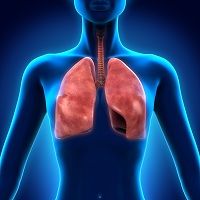Article
Pediatric Asthma Flares May be Marked by Boost in Key Clotting Factors
Author(s):
Endothelial activation and levels of C-reactive protein, plasminogen activator inhibitor type-1, and von Willebrand factor increased during asthma exacerbations in a study of 22 pediatric patients.

Recent studies have shown coagulation pathway activation and platelet activation in inflammatory diseases of the lungs, including asthma.
To determine levels of key blood coagulation factors during asthmatic exacerbations in children and to compare them with levels during periods of stable asthma, researchers from Mahidol University, Bangkok, Thailand, studied 22 pediatric patients with an exacerbation of asthma. Results of the study were published in the International Archives of Allergy and Immunology.
The researchers found statistically significantly higher median levels of von Willebrand factor, plasminogen activator inhibitor type-1 (PAI-1), and C-reactive protein during asthma exacerbations than during periods of stable asthma. In contrast, the median protein C level was significantly lower during asthma exacerbations than during periods of stable disease (99.5% vs. 113%; P = 0.01).
The researchers found no significant difference in levels of D-dimer, prothrombin fragment 1 + 2, and thrombin-antithrombin complex between the exacerbated state and the stable disease state. However, D-dimer was positively related to asthma exacerbation score (R = 0.47, P = 0.03), and a significant association was found between von Willebrand factor and C-reactive protein (R = 0.53, P = 0.01).
The researchers concluded that the increases in endothelial activation and PAI-1 level they found during exacerbations provided further evidence supporting the role that blood coagulation plays in asthma.
A separate study from the Dr. Behcet Uz Children’s Hospital, Izmir, Turkey, however, found that mean platelet volume (MPV) is a poor indicator of platelet-related inflammation in pediatric asthmatic patients. In this study of 95 asthmatic children and 100 healthy, matched control subjects, investigators found no significant differences in MPV during periods of exacerbation compared with stable periods in asthmatic children. Neither did they find a significant difference in MPV in asthma patients in either state compared with MPV in control subjects.
Moreover, they noted that asthma severity, exacerbation severity, immunotherapy, coinfection, eosinophil count, and immunoglobulin E level had no effect on MPV.
As a result, they concluded that, although platelets have a role in the pathophysiology of asthma, MPV is insufficient to detect inflammation related to platelets.
Related Coverage:
- Asthma: It Can Begin Before Birth, Study Finds
- Wrangling Rogue “ADAM33” Gene Could be Key to Preventing Asthma
- Study Finds Key Outcome Predictors For Reducing Asthma Therapy




